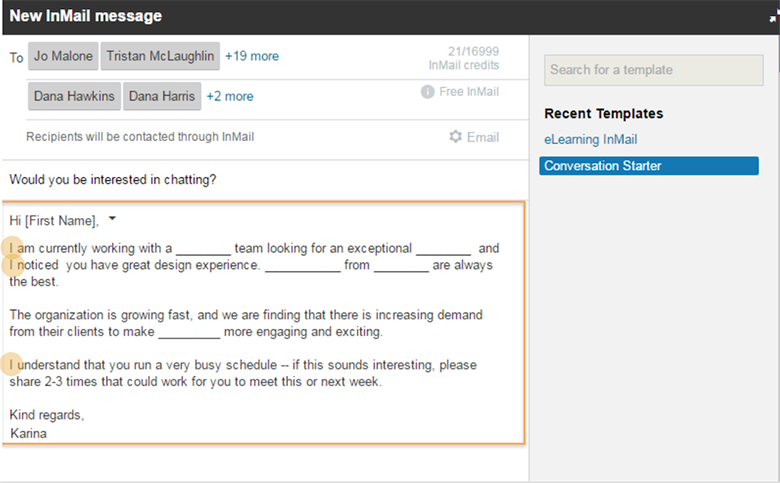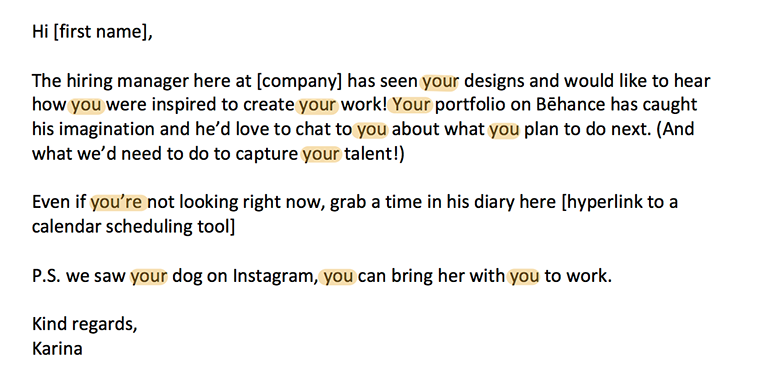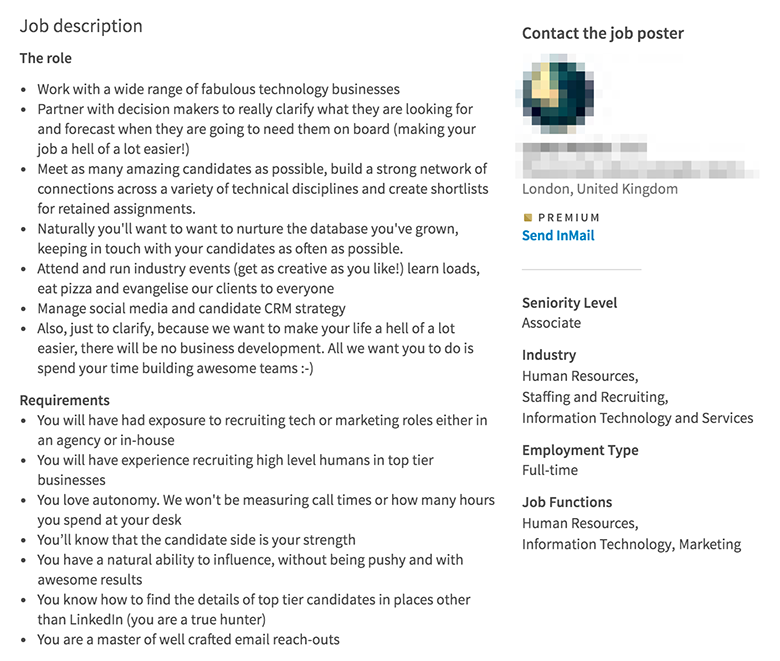The last time you received an unexplained invite to connect on LinkedIn, did you sigh deeply and think, “Ugh, what do you want?” Or perhaps your reaction was even worse? Truly, wasn’t that the first thought that passed through your mind, even if you quickly dismissed it.
Isn’t it the same for all the interruptions interactions you now receive from strangers or companies over email, text, and more? You’re immediately thinking, “How much time is this going to cost me?”
There are 156 million emails and 16 million texts sent every single minute. And that’s before you include phone calls, notes from colleagues, social media posts, and everything else that vies for your attention during the working day.
You know what I mean. You are trying to concentrate on an important task and ping, beep, buzz, you’re pulled away… and where were you? Oh that’s right, trying to read this blog.
Recruiter, you are no longer in a war for talent; you’re in a fight for attention. In short, every single time you reach out to someone about a job posting, you need to think about whether you deserve that person’s time and energy. You may think so but do they?
There is a lot of talk in the recruiterverse about personalization, even hyperpersonalization, and rightly so, that’s how you should be using tools like MightyRecruiter, which allows you to quickly and easily create custom email outreach messages to promising candidates (use it for free today!).
But without using the word YOU in your messages and job posts, you’re missing a trick. An attention-grabbing trick!
Putting the ‘You’ in Messaging
Many tool providers promote the use of outreach templates for saving time, and I can understand why that could be useful, but there is a sting in the tail. If everyone is using the same template, people will catch on.
For instance, the template below is suggested to every single person who has completed LinkedIn Recruiter training; can you imagine what it must feel like to receive the exact same message over and over?

But apart from being largely generic, this bog-standard message’s main issue is that it uses the word “I”, which evokes that “so what?” reaction. Think about it: as someone who doesn’t know you from a bar of soap and who might not even be looking for a job, I don’t care what role you’re working on or that you can read my profile or that you understand I am busy; I want to know what’s in it for me?
Imagine using something like this instead:

Why this works:
- It’s all about the recipient; it uses 11 ‘you’s and ‘your’s.
- It shows you’ve done your homework and that the hiring manager is interested (and with a visual role like this, you can check the portfolio first)
- It’s not about an immediate vacancy; if someone isn’t looking right now, they’ll say no, so be more open to down-the-line possibilities and use your recruiter powers of persuasion.
Putting the ‘You’ in Job Descriptions
If you think job descriptions aren’t a prime opportunity to start to prove that you and your company are worth talking to, then you need to wake up and smell your empty applicant pool.
These critical write-ups may not be tailored to each individual candidate, but the language, tone, and information you choose to include sends a clear message about who you are and what people can expect if they join your organization.
This is a pretty good example of a job description that harnesses the power of ‘you’.

Look at all of those ‘you’s!
But what it lacks is a strong opening, a question perhaps? Like one of these:
- Would you like to work in a candidate-centric role where there’s zero business development?
- Do you care about getting people great jobs and hate cold calling?
- If you saw a job for an agency that genuinely values its candidates, would you want to know more? Read on.
You’re getting the point, right? It’s about making it personal. Conversational. Intriguing. (But please follow it through! Apply for your own job, on your phone, and tweak every step you come across. If you get frustrated along the way, you can guarantee that a potential applicant will too.)
Don’t Believe in the Power of You?
If you have read to the end of this blog, you’ve been under its spell. You’ll feel like we’ve been having a private conversation even though you’re reading it online.
That, that is the power of using the word ‘you’.
 MightyRecruiter
MightyRecruiter




Leave a Reply